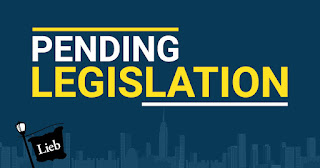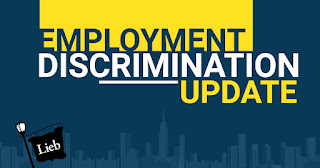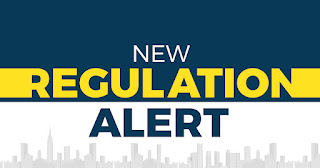Monday, May 06, 2024
Thursday, May 02, 2024
Monday, April 29, 2024
These are key questions that typically arise in evaluating a hostile work environment claim and whether it amounts to unlawful harassment:
- Was the conduct both objectively and subjectively hostile?
- Objective hostility: was the conduct sufficiently severe or pervasive to create a hostile work environment from the perspective of a reasonable person?
- Subjective hostility: did the complainant actually find the conduct hostile?
- What conduct is part of the hostile work environment claim?
- Can conduct that occurred outside the workplace be considered?
- Can conduct that was not specifically directed at the complainant be considered?
Ready for a big jump in being entitled to overtime pay, which is 1.5 times pay?
The Department of Labor has set new effective earnings thresholds to be entitled to overtime pay per 29 CFR 541.
Starting on January 1, 2025, we are moving the Fair Labor Standards Act (FLSA) from an entitlement to overtime pay for those making under $35,586 to those making under $58,656 per year ($1,128 per week). Note that this threshold does not apply to employees who are "bona fide executive, administrative, or professional capacity . . . or in the capacity of [an] outside salesman," which terms are defined at 29 CFR 541.
These numbers are particularly important because a worker who is not paid properly can recover 2X back wages (liquidated damages) on unpaid overtime from the prior 2 years.
Title IX's anti-discrimination obligations on elementary schools, secondary schools, postsecondary institutions, and other recipients of federal financial assistance have been updated and become effective August 1, 2024, by regulation 89 FR 33474 (34 CFR 106)
Title IX states that “No person in the United States shall, on the basis of sex, be excluded from participation in, be denied the benefits of, or be subjected to discrimination under any education program or activity receiving Federal financial assistance,” absent certain exceptions. 20 U.S.C. 1681.
Consistent with Title VII's SCOTUS decision in Bostock v. Clayton County, the regulations define sex broadly to "include[] discrimination on the basis of sex stereotypes, sex characteristics, pregnancy or related conditions, sexual orientation, and gender identity" in § 106.10.
The regulations have been updated for the following purposes:
- "to provide greater clarity regarding:
- the definition of “sex-based harassment”;
- the scope of sex discrimination, including recipients' obligations not to discriminate based on sex stereotypes, sex characteristics, pregnancy or related conditions, sexual orientation, and gender identity; and
- recipients' obligations to provide an educational environment free from discrimination on the basis of sex."
- to ensure that "recipients' procedures for investigating and resolving complaints of sex discrimination are fair to all involved."
Tuesday, April 23, 2024
The Federal Trade Commission (FTC) has just issued a Non-Compete Clause Rule banning all Non-Competes.
This Final Rule provides that it is an unfair method of competition for persons to, among other things, enter into non-compete clauses. While this Final Rule does not include a salary threshold, it does allow for non-competes when a business is sold, and also allows existing non-competes to be enforced for senior executives.
So, existing non-competes for workers, who are not senior executives, are no longer enforceable (retroactively undoing contracts). Is that a violation of due process / impermissible taking for employers? Are constitutional challenges next?
Yet, the most interesting paragraph of the Final Rule reads:
Non-solicitation agreements are generally not non-compete clauses under the final rule because, while they restrict who a worker may contact after they leave their job, they do not by their terms or necessarily in their effect prevent a worker from seeking or accepting other work or starting a business. However, non-solicitation agreements can satisfy the definition of non-compete clause in § 910.1 where they function to prevent a worker from seeking or accepting other work or starting a business after their employment ends. Whether a non-solicitation agreement—or a no-hire agreement or a no-business agreement, both of which were referenced by commenters, as discussed previously—meets this threshold is a fact-specific inquiry. The Commission further notes that—like all the restrictive employment agreements described in this Part III.D—non-solicitation agreements, no-hire, and no-business agreements are subject to section 5’s prohibition of unfair methods of competition, irrespective of whether they are covered by the final rule.
Moving forward, non-competes are mostly gone, but non-solicitation agreements, no-hire, and no-business agreements are clearly also on the chopping block where the utilization of each could easily result in protected litigation as to whether they are covered by the Final Rule or generally by section 5's prohibition of unfair methods of competition.
You can read the FTC's press release here.
You can read the Final Non-Compete Clause Rule here.
The Federal Government recently passed the Pregnant Workers Fairness Act (PWFA), which significantly strengthens protections for pregnant workers and enhances the process for addressing discrimination claims related to pregnancy and related medical conditions in several ways including:
- Clear Prohibitions: The PWFA explicitly prohibits discrimination against pregnant employees, including adverse actions, denial of employment opportunities, and coercion. This clarity empowers pregnant workers to assert their rights without fear of retaliation.
- Mandatory Reasonable Accommodations: Covered entities are required to make reasonable accommodations for pregnant employees unless it causes undue hardship. This ensures that pregnant workers can continue working without facing unnecessary barriers due to their pregnancy or related medical conditions.
- Interactive Process Requirement: The Act mandates an interactive process between employers and employees to determine appropriate accommodations. This process promotes transparency and collaboration, ensuring that accommodations are tailored to meet the specific needs of pregnant workers.
- Expansive Definitions: The PWFA provides comprehensive definitions of terms such as "known limitation" and "related medical conditions," broadening the scope of protections for pregnant workers. This clarity reduces ambiguity and strengthens the basis for discrimination claims.
- Limits on Supporting Documentation: The Act imposes limits on the type of supporting documentation employers can request from pregnant employees seeking accommodations. This prevents employers from creating unnecessary barriers or burdens for pregnant workers seeking to exercise their rights.
Lieb at Law's real estate brokerage litigation services includes representation in courts, arbitrations, and mediation where we conduct hearings, trials, and appeals in addition to negotiating favorable settlements,on such topics as:
- Anti Competitive Practices
- Breach of Fiduciary Duty
- Commission Disputes / Affidavits of Entitlement
- Fair Housing & Discrimination
- False Advertising
- Fraud / Fraudulent Inducement
- License Law Violations and Administrative Complaints before the Government
- NAR / REBNY Ethics & MLS / RLS Complaints
- Subpoenaed Non-Party Witness Representation
In addition to their litigation expertise, Lieb at Law assists in mitigating litigation risk by developing customized policies, forms, and procedures for each company, aimed at enhancing overall compliance and reducing legal challenges. They draft independent contractor agreements, in compliance with such laws as the Freelance Isn't Free Act, and employment agreements, so as to avoid misclassification issues. Furthermore, their extensive training programs for licensees, including digital on-demand sessions, play a crucial role in equipping real estate broker's to defend against lawsuits effectively.
Lieb at Law's trainings and policies are meticulously crafted to mitigate litigation risks. Led by Attorney Andrew Lieb, their compliance courses provide invaluable insights and practical guidance, helping licensees, managers, and other employees and independent contractors, stay up-to-date with regulatory requirements and industry best practices.
Explore Lieb at Law's comprehensive range of TRAININGS & CERTIFICATIONS, covering essential topics such as Fair Housing & Discrimination, Rental Training, Subsidies Training, Housing Security and Tenant Protection Act of 2019, Agency Disclosure, Sexual Harassment Prevention Training, New Agent Training / Orientation Training, Commercial Compliance, Property Manager Compliance, License Law Annual Updates, and License Obligations.
At Lieb at Law, they understand the importance of proactive legal measures and ongoing education in safeguarding the interests of real estate brokerage companies. Trust Lieb at Law to be your strategic partner in navigating legal challenges and ensuring compliance in today's changing real estate brokerage industry.
Friday, April 19, 2024
Real estate discrimination must be fought any time you’re buying, selling, or renting any type of housing or commercial property. Real estate discrimination involves unfair treatment because of your source of income, disability, race, religion, sex, gender, and many other protected classes. Because discrimination in the housing market can be attributed to so many factors, it’s crucial for buyers, sellers, and renters to be familiar with their rights. Learn more about real estate discrimination through our answers to your most frequently asked questions below.
If you are a real estate broker or salesperson charged with discrimination, contact Lieb at Law to learn how we can defend you with our team of real estate discrimination lawyers.
Is real estate discrimination illegal?
Yes. Discrimination in real estate is illegal throughout the United States. In some states, like New York, there are even greater protections, rights, and damages available to victims of housing discrimination. You are entitled to compensation whether you were discriminated against by a seller, landlord, tenant co-op, condo, HOA, lender, real estate broker, salesperson, or property manager.
Does real estate discrimination only apply to housing?
No. Real estate discrimination laws apply to both housing and places of public accommodation. Examples include shopping centers, professional offices, retail stores, recreational facilities, service centers, and educational institutions.
Can I sue for housing discrimination?
Yes. Not only is it possible to sue for real estate discrimination, but Lieb at Law, P.C. has helped countless individuals recover compensatory damages and punitive damages for the emotional distress inflicted by this unlawful act. If you or a loved one were discriminated against because of your protected status or class, it is critical to work with an experienced attorney who will fight to ensure that you receive the compensation you deserve.
What qualifies as discrimination?
Discrimination is classified as unfair treatment to an individual because of their protected status or class. These statuses/classes vary throughout the United States, but may include race, ethnic background, visible traits (hair texture, hairstyle, donning of religious garments or items), color, national origin, citizenship status, alienage status, immigration status, lawful source of income (subsidy recipient status), occupation, religion, creed, marital status, partnership status, sex, gender, sexual orientation, gender identity or expression (transgender status), domestic violence victim status, stalking victim status, sex offense victim status, familial status, pregnancy, presence of children, handicap (disability), age, military status, uniformed service, veteran status, first responder status, arrest record, and sealed conviction record.
Can a real estate / housing provider change the terms of a lease or contract based on my protected class?
No. The law prevents real estate / housing providers from changing the terms, conditions, privileges, and/or availability of property based on your protected class status. It requires real estate brokers / salespersons to give you written disclosures that advise you of your rights. It prevents you from being treated differently from others where only the terms of your offer matter, not who you are.
Are handicapped individuals entitled to housing accommodations?
Yes. If you are handicapped or disabled, you are entitled to receive reasonable accommodations and reasonable modifications to allow you to equally use and enjoy the property. Your actual diagnosis does not need to be revealed and can remain confidential if you seek an accommodation or modification. In addition, the cost of the accommodation cannot be charged to you. In places like New York City, the cost of modifications cannot be charged to you either.
What are common examples of disability cases concerning housing discrimination?
The most common handicap and disability cases that we see involve service animals or emotional support animals in no pet properties. Other types of cases include parking issues, egress ramps for mobility impairments, and additional failure-to-accommodate cases. When it comes to accommodating the rights of handicapped and disabled individuals, providing access is essential.
Can I be discriminated against based on my source of income?
Whether you receive subsidies, like Section 8 (Housing Choice Vouchers), or are unemployed and receive child support, disability, spousal support, or have a trust fund, your source of income cannot impact your housing choices. The law protects you from offensive signage, improper applications, and/or wrongful questionnaires if they inquire about your employment status, request your W-2, or solicit a letter of employment. Where you get your rent money is your business and yours alone.
Can I be retaliated against if I proceed with a discrimination lawsuit?
Don't be afraid to speak-up. If you are advancing a fair housing and/or anti-discrimination right, you are protected from retaliation. Even if it is ultimately found that you were not discriminated against, you can be compensated for facing unlawful coercion, intimidation, threats, or other types of interference with your anti-discrimination rights. It also applies if you are an ally who is aiding and/or encouraging someone else to exercise their rights to be free from discrimination.
What happens if I win my housing discrimination case?
As the victim, you can recover compensatory damages, punitive damages, and your attorneys’ fees. The perpetrator can lose their license (if applicable), be required to take trainings, be made to pay fines, and be ordered to stop their offensive behavior. Working with a top discrimination attorney affords you the best possible chance at a successful outcome to your case. If you or a loved one has been treated unfairly and is in need of legal assistance, contact Lieb at Law today.
*attorney advertising
Thursday, April 18, 2024
The Supreme Court just adopted The Simple Injury Standard to identify discriminatory terms and conditions of employment when it ruled unanimously that an employer's act of transferring an employee "from one job to another because she is a woman" (or another protracted trait) is actionable discrimination under Title VII.
The case, Muldrow v. City of St. Louis, states that discrimination is actionable so long as the employee can identify "some harm" regardless if that harm is "significant" because to “discriminate against” refers to “differences in treatment that injure” employees. Specifically, in Muldrow, the plaintiff sued because her "terms [or] conditions" of employment were changed, even though her "rank and pay remained the same," because her new position changed her "responsibilities, perks, and schedule," based on who she was. SCOTUS explained that this "meet[s] that test with room to spare" in overturning the lower court's dismissal based on the now extinct "materially significant disadvantage" standard.
In Muldrow, the simple injuries experienced that support a discrimination claim were:
- "She was moved from a plainclothes job in a prestigious specialized division giving her substantial responsibility over priority investigations and frequent opportunity to work with police commanders."
- "She was moved to a uniformed job supervising one district’s patrol officers, in which she was less involved in high-visibility matters and primarily performed administrative work."
- Her schedule became less regular, often requiring her to work weekends; and she lost her take-home car."
Specifically, SCOTUS held that "[a]lthough an employee must show some harm from a forced transfer to prevail in a Title VII suit, she need not show that the injury satisfies a significance test." That is the new test, resolving a split in the Circuit Courts, as to the definition of an adverse employment action for an employment discrimination claim.


















